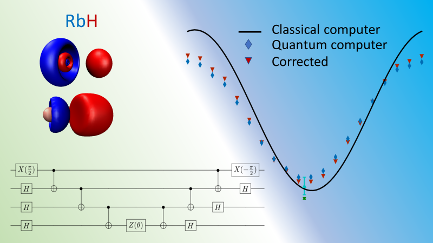
The Science
ORNL researchers have developed a quantum chemistry simulation benchmark to evaluate the performance of quantum devices and guide the development of applications for future quantum computers. Specifically, the team calculated the bound state energy of alkali hydride molecules on 20-qubit IBM Tokyo and 16-qubit Rigetti Aspen processors. These molecules are simple and their energies well understood, allowing them to effectively test the performance of the quantum computer.
The Impact
Quantum systems have the potential to be exponentially more powerful than today’s leading classical computing systems and promise to revolutionize research in materials, chemistry, and high-energy physics, to name a few. But because quantum computers are in their relative infancy, understanding what applications are well suited to their unique architectures is considered an important field of research. These benchmarks give researchers an idea of how future quantum systems will perform when tackling more complex simulations.
PI(s)/Facility Lead(s): Raphael Pooser
Publications: McCaskey, A.J., Parks, Z.P., Jakowski, J. et al. Quantum chemistry as a benchmark for near-term quantum computers. npj Quantum Inf 5, 99 (2019).
Funding: ASCR




